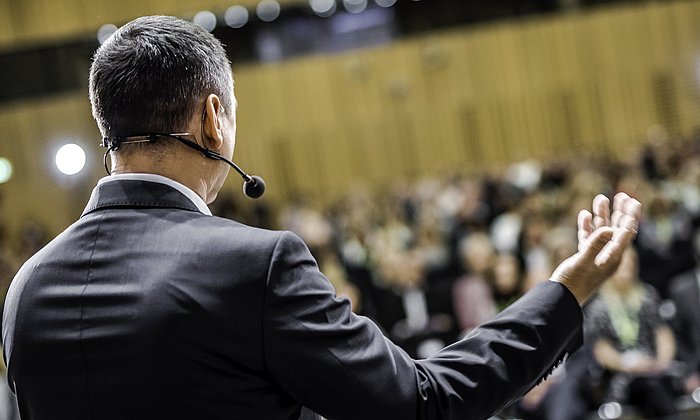If a lie could harm their image, people are more likely to forgo financial benefits
Social status beats money

Trust is essential to every business relationship. Customers want honest information from the the vendor of a complex high-tech product. But can they rely on what they are told? After all, the salesperson looking to earn a commission could be downplaying the disadvantages of the product.
In which situations can we trust other people even though they might have financial incentives to lie? To answer this question, Prof. Michael Kurschilgen (Technical University of Munich and Max Planck Institute for Research on Collective Goods) and Dr. Isabel Marcin (University of Heidelberg) put approximately 190 experimental participants to the test.
General knowledge versus tabloid gossip
The participants were given multiple choice questions, for example: "In which country's embassy did Julian Assange take refuge?" The test persons were divided into two groups: senders and receivers. The senders saw both the question and four possible answers, and recommended one answer to the receivers. The receivers saw only the question and the sender's recommendation. While the receivers got three euros for every correct answer, the senders got three euros for every wrong answer of a receiver. The sender therefore had a financial incentive to lie.
For half of the participants, the test consisted of general knowledge questions on such topics as history, geography, art and politics – like the question about the Wikileaks activist Assange. The other half saw questions on TV series, commercials and celebrity gossip, such as: "In what country was Irina Shayk, the ex-girlfriend of soccer star Cristiano Ronaldo, born?" In a pre-study, Kurschilgen and Marcin identified questions in both categories to which an average of 63 percent of the participants knew the answers.
More honesty with culture and politics
If senders were always honest, they would therefore give correct recommendations with the same frequency for the general knowledge questions as for the tabloid gossip. However, the experiment revealed: Only 32 percent correct recommendations were sent for the gossip questions,but 46 percent for the general knowledge questions.
"When the participants had the opportunity to signal that they were knowledgeable in high-status areas, many of them attached more importance to their image than to the financial reward," says Michael Kurschilgen. "The experiment shows that the desire for social status can overcome financial incentives to lie." A post-study confirmed that knowledge of history, culture and politics is actually associated with higher social status than the tabloid topics.
Increasing importance of trust in business
Identifying intrinsic factors influencing human behavior – in other words, non-material motives – is a current focus of research in behavioral economics. "Technological progress is making products and processes more and more complex. They require extensive expert knowledge that is difficult to check. Consequently, trust is going to become even more important in business," explains Isabel Marcin. "Financial incentives not to lie only work when the truth of a statement can actually be checked. People’s intrinsic motivation to be honest is therefore more important than ever."
The study shows when this might be the case: "When expertise in complex technologies enjoys the same or even higher status than general knowledge, we have some reason to trust the people selling us high-tech products," says Kurschilgen. "The desire for social status will then motivate them to be more honest."
Michael Kurschilgen, Isabel Marcin. Communication is more than information sharing: The role of status-relevant knowledge. Games and Economic Behavior, Volume 113 (2019). DOI: 10.1016/j.geb.2018.11.007
Technical University of Munich
Corporate Communications Center
- Klaus Becker
- klaus.becker@tum.de
- presse@tum.de
- Teamwebsite
Contacts to this article:
Prof. Dr. Michael Kurschilgen
Technical University of Munich
Professorship of Managerial Economics
Tel.: +49 89 289 25394
m.kurschilgen@tum.de


